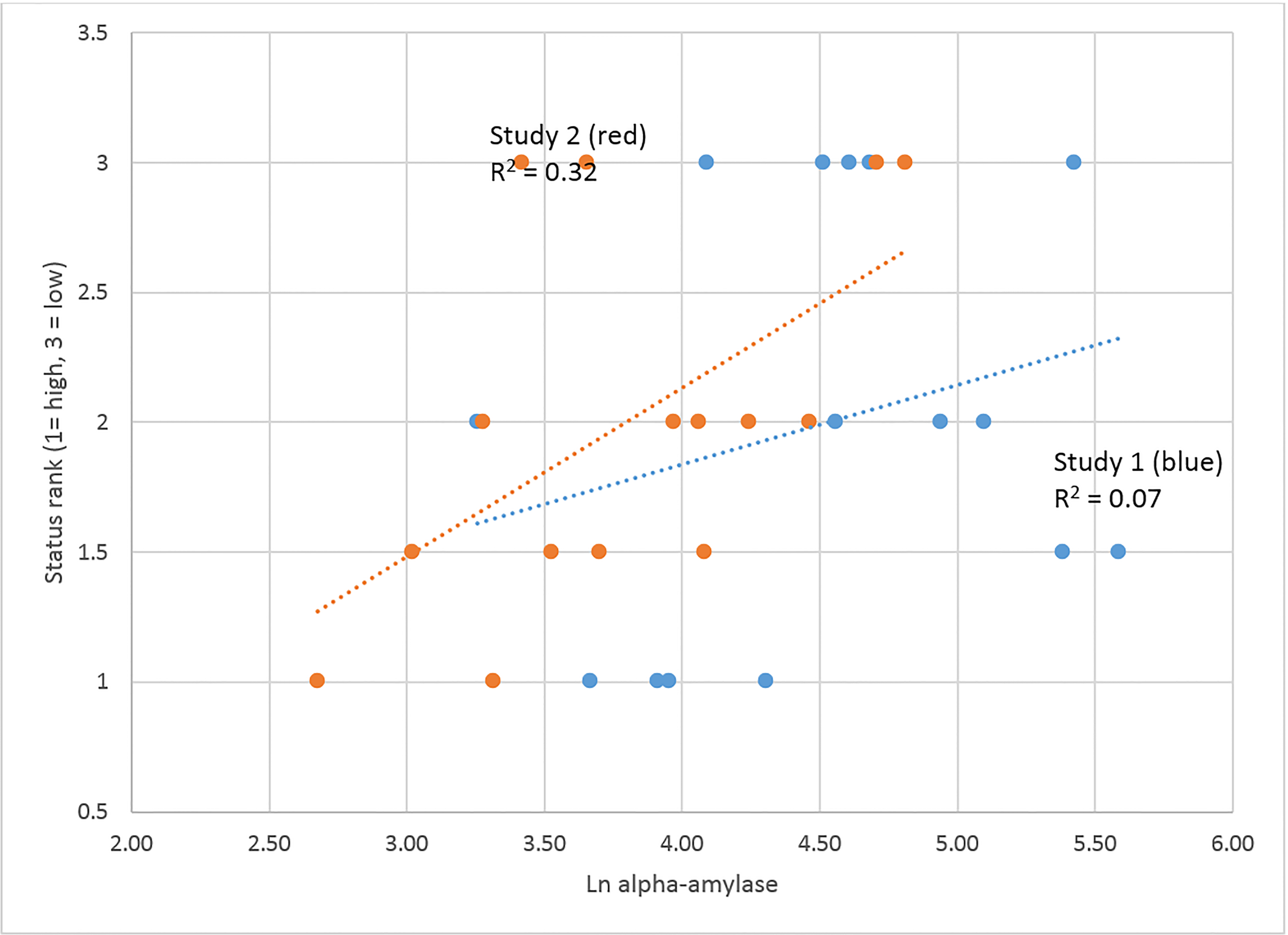Speech as a Form of Social Status Signaling

High alpha-amylase is associated with low status (shown for both studies). doi:10.1371/journal.pone.0142941.g003
Humans, much like animals, separate themselves into different social hierarchies often associated by some specific sort of status signal. While animals may assign hierarchies strictly through physiological measures, the Biosocial Model states that speech is often the strongest form of status signaling for humans. BIOPAC user Allan Mazur recently was part of the research team that ran a study performed at Syracuse University that sought to test certain aspects of the Biosocial Model through conversations between unacquainted men. The researchers sought to understand whether physiology of status was important in casual conversation and if human speech works to convey dominant signs, much like the theory states. Two separate studies were performed, one where the conversation was given no stakes and another where $20 was offered to the individual who the group agreed (through questionnaire) to be the conversation leader. A PPG sensor was connected to participants’ thumbs while a BIOPAC MP Data acquisition system with analysis software recorded and synchronized data with video recording. The researchers found that the results supported their hypothesis as individuals who were able to steer topics and bring up points for discussion were signaled as being the leader of the conversation. Talking turns were also shown to be more stressful than speaking turns (especially in low-ranking members) showing physiologically that speech is a stress based mechanism for status allocation amongst humans.
Read and download the entire paper here. Mazur A, Welker KM, Peng B (2015) Does the Biosocial Model Explain the Emergence of Status Differences in Conversations among Unacquainted Men? PLoS ONE 10(11): e0142941. doi:10.1371/journal.pone.0142941
Learn more about….
- PPG Transducers
- Data Acquisition Systems: MP36 or MP150
- Analysis Software: Biopac Student Lab or AcqKnowledge
- Video Synchronization Systems
Stay Connected